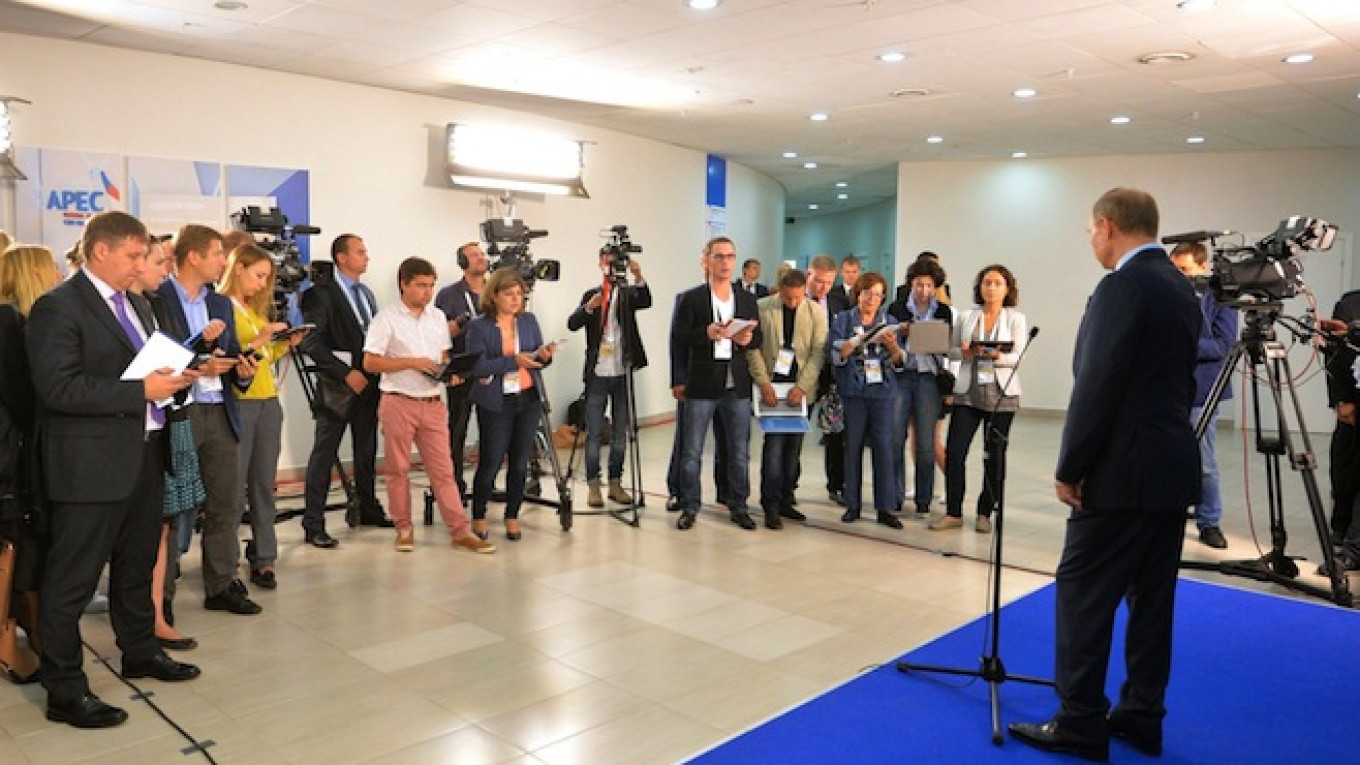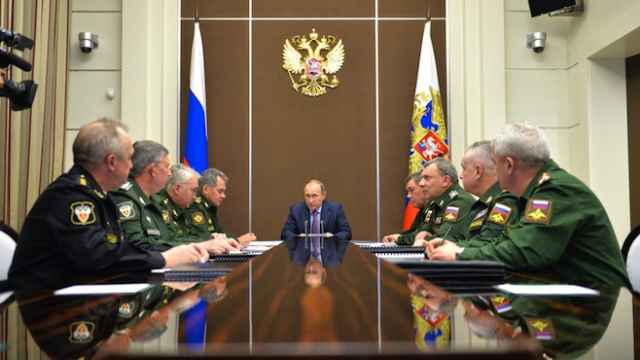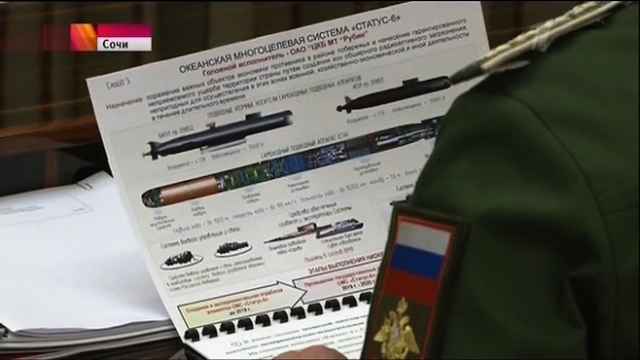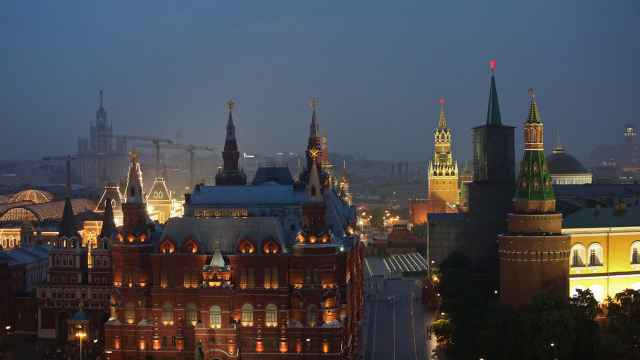Following the “unintentional” leak of a secret military project by state television on Tuesday, the Kremlin has instituted new guidelines for covering military meetings: cameramen must keep their cameras pointed at the wall until the president arrives, the Kommersant newspaper reported Friday.
During a meeting between President Vladimir Putin and his senior military advisors and officials in the seaside village of Sochi on Tuesday, a cameraman briefly filmed over the shoulder of a military officer, catching a description of a new weapons system known simply as “Status-6.”
Status-6 appears to be an unmanned submarine packed with a high-megaton thermonuclear warhead and radioactive material to create a massive dirty bomb, which would render an enemy's port or coastline a radioactive wasteland “for long periods of time.”
The Pentagon has reportedly been aware of such a weapon under development in Russia for at least a year, and Russian analysts have argued that the leak was intentional to demonstrate the lengths Russia is willing to go in preserving its nuclear deterrent in the face of U.S. missile defenses.
Nonetheless, Kremlin spokesman Dmitry Peskov on Wednesday lamented the allegedly unintentional leak, promising to tighten procedures for state media reporters covering meetings between Putin and his military staff.
Reporters will now have to leave their cell phones with security guards before entering such meetings, photographers cannot take photos before Putin enters the room, and television cameras must be pointed at the wall until the meeting starts, Kommersant reported.
Furthermore, military officials present at meetings are being encouraged to study their documents prior to the arrival of the press.
A Message from The Moscow Times:
Dear readers,
We are facing unprecedented challenges. Russia's Prosecutor General's Office has designated The Moscow Times as an "undesirable" organization, criminalizing our work and putting our staff at risk of prosecution. This follows our earlier unjust labeling as a "foreign agent."
These actions are direct attempts to silence independent journalism in Russia. The authorities claim our work "discredits the decisions of the Russian leadership." We see things differently: we strive to provide accurate, unbiased reporting on Russia.
We, the journalists of The Moscow Times, refuse to be silenced. But to continue our work, we need your help.
Your support, no matter how small, makes a world of difference. If you can, please support us monthly starting from just $2. It's quick to set up, and every contribution makes a significant impact.
By supporting The Moscow Times, you're defending open, independent journalism in the face of repression. Thank you for standing with us.
Remind me later.






